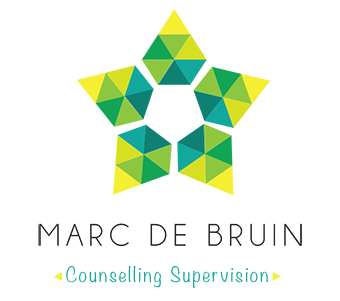Supervising yourself with reflective and reflexive practice
One of the questions that came up during one of my sessions was: How do I actually supervise myself?
It’s a good question.
Obviously, as counsellors, we engage in some form of self-supervision, typically through reflective and reflexive practices. These processes are key to ensuring we maintain the highest quality of therapeutic care, both for ourselves and for our clients.
When I teach at university, I make a distinction between reflective practice and reflexive practice. These two approaches to self-supervision are crucial tools in our work as counsellors, so understanding the difference between them and how to apply each in practice can make a real difference.
What is Reflective Practice?
For me, reflective practice typically happens after the session. It’s a process of looking back over the session once it’s done. Now, I don’t do this every time, but I’ll make a point of doing so if the session didn’t go the way I wanted, or sometimes if it went really well and I want to understand why that was.
Reflective practice is about asking ourselves questions like, What were the key moments in that session? Why did it feel like I connected well with the client? Or, on the flip side, Why didn’t things flow the way I’d hoped?
Reflecting after the fact gives us a chance to look back with a bit more clarity and consider what worked and what didn’t. This can help us to better understand our therapeutic process and ultimately improve our work.
What is Reflexive Practice?
Reflexive practice, on the other hand, happens during the session. This is what I encourage my students to develop—having that meta-awareness as the session unfolds. It’s like having an internal observer in the background, checking in on how things are going in the moment.
Are you still connected with the client? How is the therapeutic relationship right now? Is the client’s body language telling you something that doesn’t quite match what they’re saying? Are you feeling okay in the session? Are you in tune with what’s happening? Are your emotions and cognitions still manageable?
Having this reflexive awareness is crucial for more seasoned counsellors, as it allows us to make course adjustments mid-session if necessary. It could mean realising that something’s not quite right and adjusting your approach, or it could mean recognising that things are going well and staying on that track. Either way, reflexive practice keeps you engaged with the present moment in the therapeutic space.
Why Both Practices Matter
Both reflective and reflexive practices play a key role in self-supervision. Reflective practice allows us to analyse our sessions in retrospect, learn from them, and make improvements. Reflexive practice keeps us grounded and responsive in the moment, ensuring that we’re always adapting to the needs of the session.
How to Practise Self-Supervision
The way you engage in these practices is entirely up to you. You might prefer to express your reflections through creative means like art or journaling, or perhaps you prefer a more logical approach, such as taking notes or jotting down bullet points after a session. Personally, I sometimes take notes, but the key is to find a method that works best for you.
The important thing is to use both reflective and reflexive practices in your self-supervision. It’s through this ongoing process of self-awareness that we can continue to grow as counsellors and better serve our clients.
If you’re finding that reflective or reflexive practice isn’t giving you the insight you need, don’t hesitate to reach out. I’m always happy to chat and help you find a way forward.
I hope this explanation helps clarify how you can supervise yourself effectively. If you have any questions, feel free to get in touch, and until then, take care and keep up the great work.




Leave a Reply
Want to join the discussion?Feel free to contribute!